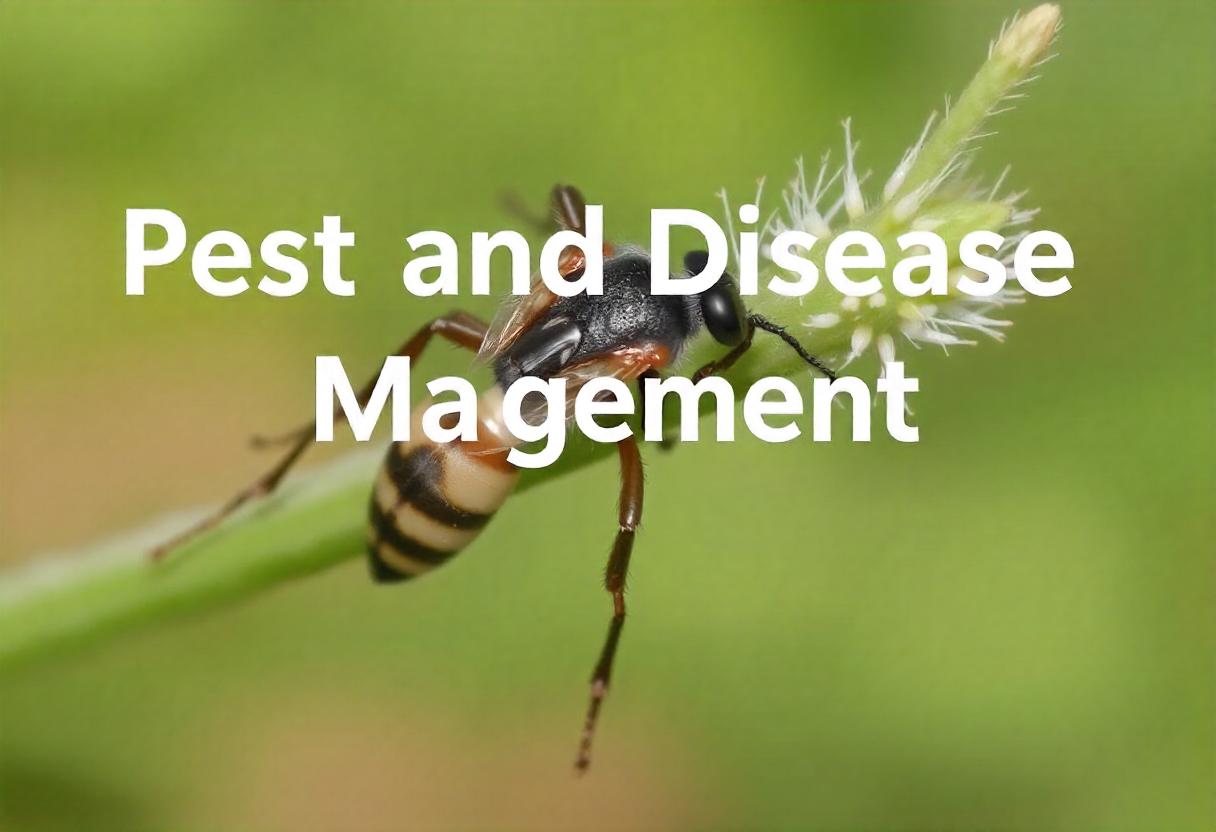
Pest and disease management is a critical aspect of agricultural production, ensuring that crops remain healthy and productive. Effective management practices not only enhance crop yields but also contribute to sustainable farming by reducing the overuse of chemical treatments. By adopting a well-rounded approach, farmers can minimize the impact of pests and diseases on their crops, leading to more resilient agricultural systems.
Understanding Pests and Diseases
Pests are organisms that cause harm to crops by feeding on their leaves, stems, roots, or fruits. These include insects, mites, nematodes, and even some animals like birds and rodents. Diseases, on the other hand, are caused by pathogens such as bacteria, fungi, viruses, and other microorganisms that infect crops and hinder their growth. Both pests and diseases can severely impact crop health, leading to reduced yields or even total crop failure if not addressed promptly.
The Importance of Integrated Pest Management (IPM)
Integrated Pest Management (IPM) is a holistic approach that focuses on preventing and managing pest infestations using a combination of techniques. The goal of IPM is to reduce reliance on chemical pesticides and promote sustainable agricultural practices. Key components of IPM include:
- Monitoring and Identification: Regular monitoring of crops helps in identifying pests and diseases at an early stage. Accurate identification is crucial, as it helps farmers choose the most appropriate control methods.
- Cultural Controls: These are preventive measures that create unfavorable conditions for pests and diseases. Examples include crop rotation, selecting disease-resistant crop varieties, and practicing proper irrigation and sanitation.
- Biological Controls: This involves using natural predators, parasites, or pathogens to control pest populations. For instance, introducing beneficial insects like ladybugs can help control aphid infestations. Similarly, certain bacteria and fungi can be used to combat plant pathogens.
- Mechanical and Physical Controls: Methods such as trapping, handpicking pests, or using physical barriers like nets and row covers can be effective in small-scale farms or gardens.
- Chemical Controls: When other methods are insufficient, chemical pesticides can be used, but they should be applied judiciously to avoid harm to beneficial organisms and reduce the risk of pesticide resistance. IPM encourages using chemicals as a last resort and selecting products with minimal environmental impact.
Crop Disease Prevention Strategies
Disease prevention is just as important as pest control, as diseases can spread rapidly and cause devastating losses. Some key strategies include:
- Soil Health Management: Healthy soils support vigorous plant growth, making crops less susceptible to disease. Practices like organic matter addition, proper drainage, and soil testing can improve soil health and reduce disease risks.
- Plant Hygiene: Removing diseased plant debris and practicing crop rotation can prevent pathogens from accumulating in the soil. Proper spacing of plants also improves air circulation, reducing the risk of fungal infections.
- Resistant Varieties: Planting disease-resistant crop varieties is one of the most effective ways to prevent diseases. These varieties are bred to withstand specific pathogens, reducing the need for chemical treatments.
- Water Management: Overwatering or improper irrigation techniques can promote the growth of pathogens, especially fungal diseases. Drip irrigation or watering plants at the base rather than overhead can reduce moisture on leaves, which helps prevent the spread of diseases.
Biological Control and Natural Enemies
The use of biological control agents has become an increasingly popular and eco-friendly alternative to chemical pesticides. Natural enemies of pests, such as predators, parasitoids, and pathogens, play a significant role in maintaining pest populations at manageable levels. For example, certain species of wasps parasitize aphids, while ladybugs and lacewings feed on a variety of soft-bodied pests.
In addition to predators, microbial pesticides—derived from bacteria, fungi, or viruses—are used to control pests. Bacillus thuringiensis (Bt) is a well-known bacterial insecticide used to manage caterpillar pests. These natural control agents are environmentally safe and target specific pests, reducing the risk to non-target organisms.
Challenges in Pest and Disease Management
Despite the availability of various management techniques, pest and disease control remains a challenge due to factors such as climate change, the emergence of pesticide-resistant pest strains, and the rapid spread of new diseases. Warmer temperatures and altered rainfall patterns can create more favorable conditions for pests and diseases to thrive, making it harder for farmers to protect their crops.
In addition, the overuse of chemical pesticides has led to the development of resistant pest populations, rendering some pesticides ineffective. This emphasizes the need for integrated approaches like IPM, which combine different methods to reduce pest pressure while preserving the effectiveness of chemical treatments when needed.